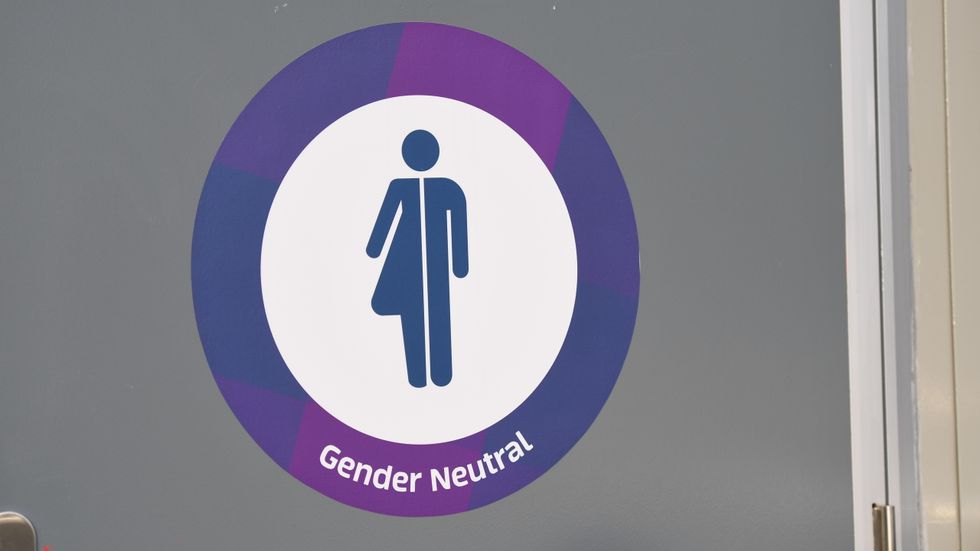Gender row: Landmark legal battle could force overhaul of ‘woke’ gender identity guidance in major shake-up

A landmark legal battle could force museums and galleries across Britain to tear up controversial gender identity guidance arguing it pushes “activist ideology” and silencing dissent.
Freedom in the Arts (FITA), a campaign group led by choreographer Rosie Kay and museum specialist Denise Fahmy, has taken the first step in a judicial review against the University of Leicester over its widely adopted Trans-Inclusive Culture Guidance.

Getty
|
A landmark legal battle could force museums and galleries across Britain to tear up controversial gender identity guidance arguing it pushes ‘activist ideology’ and silencing dissent (stock image)
The group claims the document, used by museums and galleries across the UK, misrepresents the law, discriminates against staff with gender-critical beliefs, and encourages illegal or unsafe policies.
Denise Fahmy, co-director of Freedom in the Arts, a not for profit company set up to protect freedom of expression in the cultural sector, said: “The arts world – both staff and audiences – have a variety of views and interests. We believe everyone should be catered for.
“But for those like me who don’t agree that a man can change sex or vice or versa, we are treated as heretics. We work with many artists who are scared to speak publicly or are being bullied by colleagues if they speak openly about their gender critical views.”
“The richness and the depth of the arts has been sacrificed on the altar of an oppressive ideology,” said Rosie Kay.
“This isn’t about blocking inclusion. It’s about ensuring true inclusion across all protected characteristics. We want our cultural spaces to be open, pluralistic, and lawful – not captured by ideology.”
LATEST DEVELOPMENTS:
The 44-page document, published by the University’s Research Centre for Museums and Galleries in 2023, promotes a series of recommendations that FITA argues are legally and ethically flawed.
Examples include:
- Toilet access based on self-ID – Organisations are told to allow people to “use the toilet or changing room they feel most comfortable in,” regardless of their biological sex. FITA says this may breach health and safety law.
- Compelled ideological language – Museums are advised to adopt terms such as “cisgender” and “gender expansive” and are told to “centre trans people’s lived experience,” while avoiding terms that reflect binary sex.
- Staff “unlearning” beliefs – Employees are encouraged to “unlearn” their “binary thinking” – a position FITA says is discriminatory toward those with protected gender-critical beliefs.
- Removing sex-based data – Museums are urged to review their collections and “relabel” sex-based or gendered artefacts to reflect “gender diversity,” such as reinterpreting historical materials using modern trans-inclusive terms.
- Denying funding to dissenters – The guidance implies that arts organisations should consider diversity and inclusion policies when deciding on funding or partnerships, creating what FITA says is a “loyalty test” for artists.
Co-founder Denise Fahmy said: “Over 44 pages the guidance pressures museums to adopt policies that put them at legal risk and promotes prioritising stretched museums budgets towards exhibitions promoting gender ideology.
“We’re standing up for artists, curators, staff and audiences across the UK who are too afraid to speak.”
FITA offered to help the University revise the guidance following the 2025 Supreme Court ruling, which reaffirmed that “sex” under the Equality Act means biological sex. The University rejected this offer on July 29, 2025.
The legal action coincides with the release of FITA’s new report Afraid to Speak Freely, based on a survey of 481 arts professionals.
It found:
- 84 per cent of respondents said they never, rarely or only sometimes feel free to speak publicly about their views.
- 80 per cent had experienced intimidation, harassment, or ostracism.
- 61 per cent said the backlash related directly to their artistic or curatorial work.
 GETTY |
GETTY |
The group claims the document, used by museums and galleries across the UK, misrepresents the law, discriminates against staff with gender-critical beliefs, and encourages illegal or unsafe policies (stock image)
“There is widespread, deeply held perception that it is political closure and ideological orthodoxy that governs the arts,” the report states.
“Questioning it, adding nuance, or rejecting it risks grave career and personal consequences.”
Anonymous testimonies from the report include:
- “I’ve seen behind the curtain. What I witnessed wasn’t equality – it was control, silencing and bullying.”
- “It was like a mob went after me – people I considered friends joined in.”
- “The arts sector champions artistic freedom in theory but doesn’t permit real freedom of speech in practice.”
The University of Leicester is the UK’s leading centre for museum studies, and its guidance has been embraced by the Museums Association (representing over 11,000 members and 1,800 museums), the International Council of Museums UK, and other powerful organisations.
FITA is demanding the University:
- Withdraw the guidance immediately
- Acknowledge it contains legal errors
- Commit to replacing it with revised, lawful and inclusive guidance
“We founded Freedom in the Arts to ensure that our museums, galleries and cultural spaces are welcoming to everyone,” said Kay.
“Not just those who pass an ideological test. We’re calling for guidance that is lawful, inclusive, and respectful of all protected characteristics.”
A University of Leicester spokesperson said: “The University is considering the content of the letter and it would not be appropriate to comment further at this time.”














